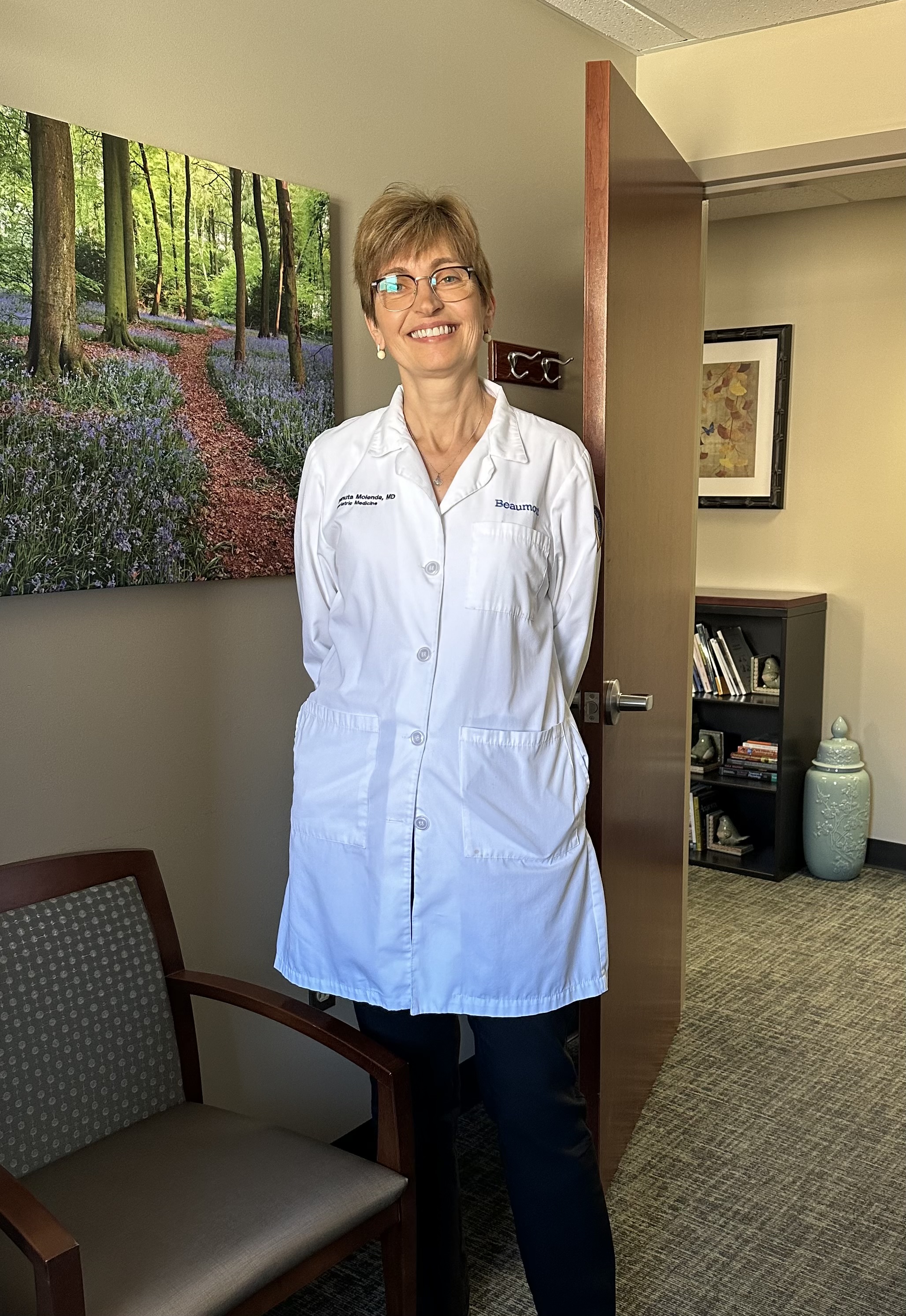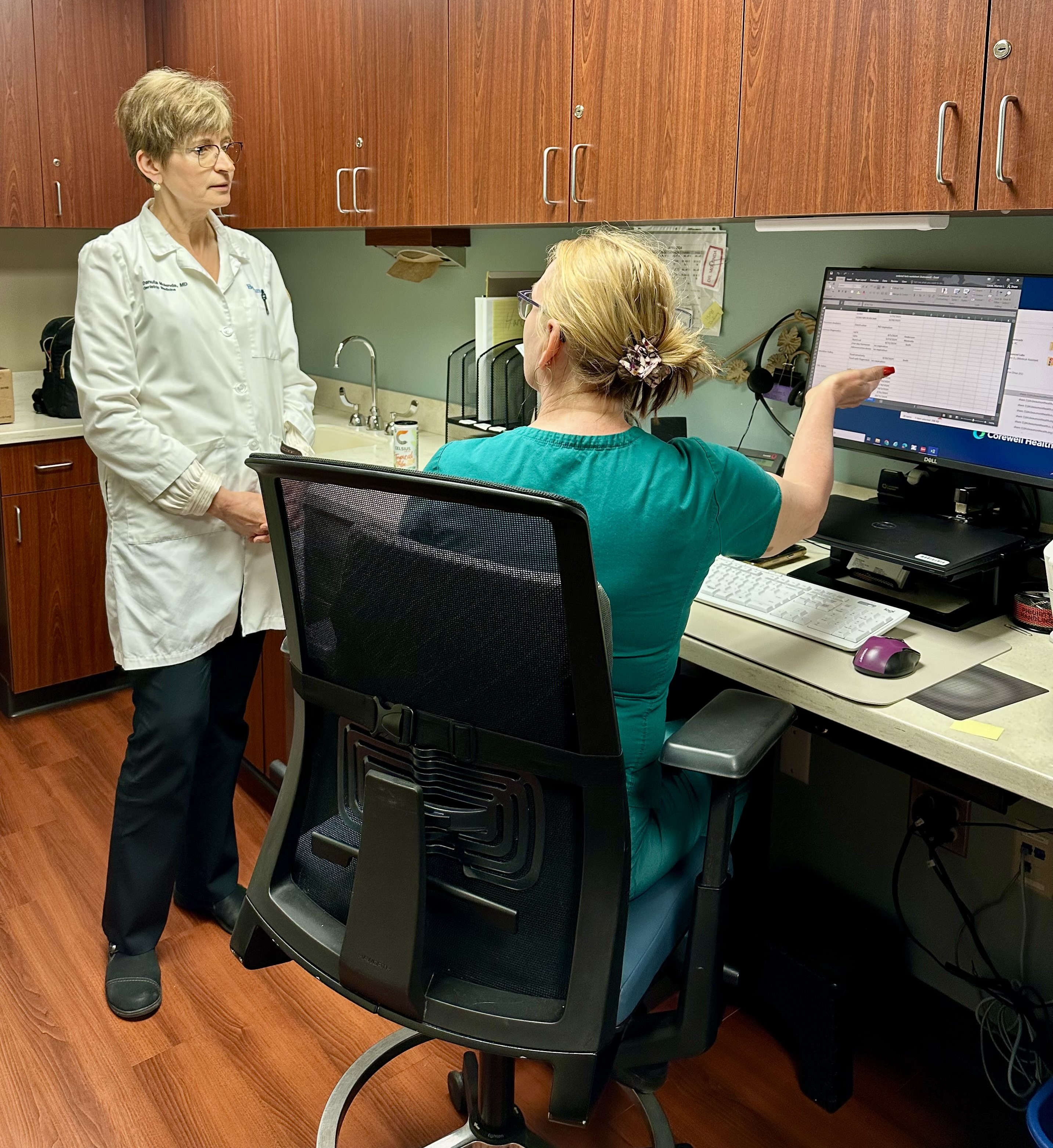How lifestyle medicine puts patients ‘back in the driver’s seat’ of their health

Danuta Molenda, M.D., started down her lifestyle medicine path 10 years ago after she saw imaging study pictures she could not “unsee.”
They were cardiac X-rays and PET scans proving coronary disease reversal with diet alone. The concept piqued Dr. Molenda’s interest.
She worked with very sick people, often with multiple advanced chronic illnesses, who spent a lot of time and money taking care of their health care needs. Too often, the most physicians could offer them was a way to stabilize their issue with medications — blood sugar, blood pressure etc. Those same patients would often pick up more chronic health problems as they got older.
“Lifestyle Medicine on the other hand puts the patient back in the driver's seat,” Dr. Molenda said.
Lifestyle medicine is rooted in science but personalizes care for a patient’s unique needs and preferences. It focuses on preventive health care with lifestyle factors such as diet, exercise, stress management, healthy sleep and avoidance of harmful substances. If a patient is proactive with their health, it can help stave off large medical issues and costs down the road.
In January, Dr. Molenda joined Corewell Health William Beaumont University Hospital’s integrative medicine program as its first physician specializing in lifestyle medicine.

She is able to bill insurance, which makes care accessible to more patients. She works at Royal Oak and Troy campuses and offers in person and video appointments.
“Patients seeking integrative approaches to health care are growing, and at times are seeking holistic approaches on their own (which can be dangerous),” said Karen Armstrong, operations manager, Integrative Medicine, Corewell Health East. “There is great benefit to offering these services through the hospital where we know the staff has adequate training, are licensed, etc.”
Maureen Anderson, M.D., medical director, integrative medicine, said patients are asked to fill out a detailed intake form ahead of an appointment. The first visit is allotted for 45 to 60 minutes to understand the patient as a person, what their health care goals are and the best way to support them in achieving these goals.
“To be clear, there is rarely a magic supplement that makes this happen! It does require the individual to take charge of their own health and make some decisions to do things differently,” she said.
However, for patients who are ready to take the plunge, disease improvement and reversal can be rapid, Dr. Molenda said.
“The more they change their lifestyle, the more improvement they can expect,” she said. “But, even for those not ready to make big changes, with smaller steps patients can move in the right direction and feel better.”